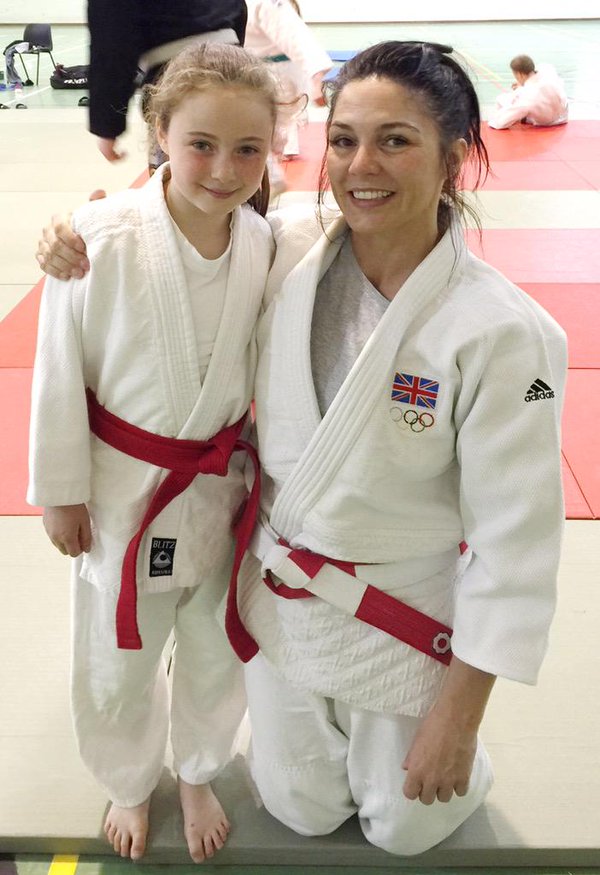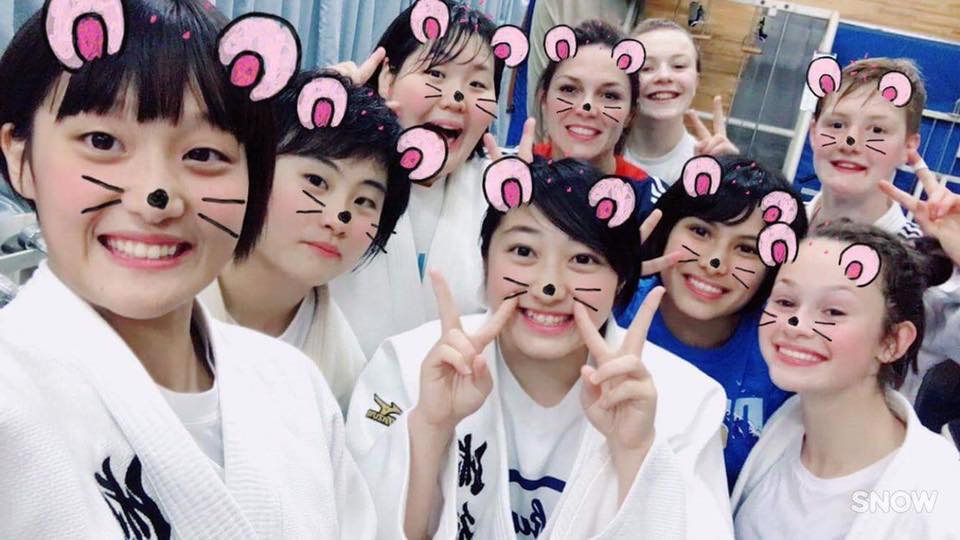For me, judo has been my constant, and something I can’t imagine not being in my life. Through judo I have found some of my best friends, had some amazing life experiences and above all, without a doubt, judo has made me into the person I am today.
I started judo at the age of nine. At that time I took for granted the fantastic underpinning fundamentals I had received from my time in gymnastics, and rose quickly through the competitive ranks under the technical guidance of a range of good club coaches, who helped shape my current coaching ethos around technical excellence.
Having trained for about three years in good community judo clubs, I transitioned to a club which specialised in competitive judo. Despite the fact that we were based in a village hall in the North East, it did feel like a world class training environment for its time.
I was lucky to have strong female role models both in coaching and in fellow athletes, such as Diane Bell, who was a double world champion at the time and went on to be my national coach towards the end of my career.
Here, the priorities were to develop a good judo technical base in both tachi-waza and ne-waza, and to be physically fit and strong. I was encouraged to work hard from an early age, try to win competitions using good techniques and develop good behaviours.
I had a strength and conditioning programme from the age of 14, which enabled me not only to develop a strong and explosive base, but also helped me to endure the tough training sessions.
I wasn’t always focused in sessions; I don’t ever think I looked forward to training as it was physically hard and repetitive. I think the commitment from my coaches and my dad, who gave up all his free time to get me there, and early success at national and international level were the drivers that encouraged me to stay committed and work towards my own international targets.
An injury in the 2000 Olympic Games put a halt on any further competitive ambitions for me. As an athlete coming out of a competitive career, not fully satisfied with my achievements, coaching gave me a new focus and a way to keep judo in my life.
My experiences, whether positive or negative, have certainly helped form the strong foundations which inspired me to coach and help develop players to move through to the international judo stage.
I had an opportunity to coach at a local club a few evenings a week and also supported our junior and cadet GB programmes. I must admit, I struggled at club level at first. I came, highly disciplined and with a strong work ethic on the mat, to an environment that was opposite of that.
It also was a clear indicator that many players we had joining our young national squads were arriving without the basic judo fundamentals and had missed many important stages needed for long term player development. It certainly gave me a new insight into judo at grass roots, but also a new focus to help improve the technical delivery that was needed at this level.
I decided to open a small community club near my home; a place where I felt I could use my experiences to help local kids who wanted to further improve their judo.
Working in my own club environment gave me a greater understanding of the complexities of grassroots judo and club coaching. As an international competitor, I believe you arrive into coaching with a higher technical skill set, experience through increased hours of study and a ‘lived’ experience.
You will understand real commitment to judo from an individual’s point of view, the technicalities of competition, the feel of momentum, of understand the feeling of pressure and fear.
We all know coaching is multi-faceted, but working and running my own club has helped me to further develop my soft skills; individual learning styles and how to manage a difficult mat with players of differing needs.
My key to club retention is simple: to make my sessions fun, progressive and, most importantly, to teach correct fundamental technique.
As a coach, my first and most important mat skill is to teach players to be a confident and co-operative Uke. Reward them for helping and moving correctly, so they understand action / reaction; this makes falling something that isn’t feared.
Teach simple gymnastic skills incorporated in warm-ups, create a learning environment where players can make friendships and feel part of a team.
My sessions are not as physically hard as mine were as a kid. As a physiotherapist, and through my coach education, I see the importance of safety and long term player development as my number one responsibility.
It is my obligation to help players develop in their time, and create a pathway to suit that child, whether that is in competition, refereeing or for a hobby. Link in and create good relationships and partnerships with other clubs and coaches.
This helps the coach and players by creating new training and learning opportunities and, most importantly, gives a wider support base for the coach and members.
As coaches, we are responsible for ensuring our athletes develop, grow and mature so they can stay and enjoy their journey in judo. By working together, supporting each other and continue to educate ourselves in this amazing and tough sport, I know the future will be bright for GB athletes.
Check out Samantha Chraniuk’s Coaching Week Blog
Check out Davie Reilly’s Coaching Week Blog
This is an edited version of a column that was originally published in the Spring 2017 Edition of Matside Magazine. Please contact communications@britishjudo.org.uk if you’d like to use this column on social media or any other sites





